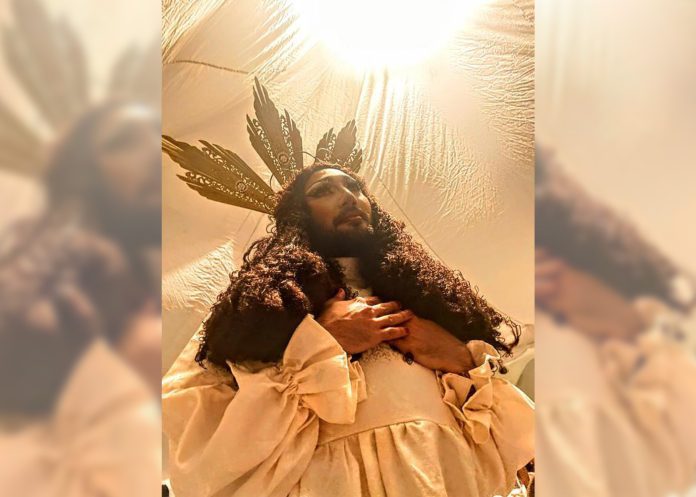Recently, a video of a drag queen clothed in imitation of Jesus Christ with a remix rendition of “Ama Namin” (The Lord’s Prayer) as a background has elicited varied opinions from those offended and those who defended the “performance”.
The Filipino drag queen was accused of blasphemy.
Merriam-Webster dictionary defines religion as “a personal set or institutionalized system of religious attitudes, beliefs, and practices; the service and worship of God or the supernatural; commitment or devotion to religious faith or observance”.
While blasphemy is defined as “the act of insulting or showing contempt or lack of reverence for God; irreverence toward something considered sacred or inviolable”.
Conversations would be endless on the issue of whether the drag queen Pura Luka Vega committed blasphemy.
The issue, however, opened up an invitation to meditate on what religion is, and how religious expression in the form of liturgy, art, and practical ministry has impacted the desired will of the people for salvation, redemption, and liberation.
This episode led me to ponder upon the reminder of a text from James 1:26-27 about what true religion is:
“If any think they are religious and do not bridle their tongues but deceive their hearts, their religion is worthless. Religion that is pure and undefiled before God the Father is this: to care for orphans and widows in their distress and to keep oneself unstained by the world” (New Revised Standard Version Updated Edition).
The prayer taught by Jesus is one of the most beautiful and radical poetry-prayer the human community can utter. It exposes the need for system change—“your kingdom come, your will be done“—because the current system under the rule of the unjust empire produces hungry people.
Jesus will not speak about “give us this day our daily bread,” if he was not aware of the prayer of the poor who depends on miracle for daily food supplication unlike the wealthy ones, i.e., the rich man (in the Lazarus story) who did not need to ask for daily bread because food is always available for him.
The bread that Jesus spoke about in his prayer symbolizes how a crooked system produces many hungry poor and few greedy wealthy people.
He was biased in his prayer for daily bread; only the poor would ask for daily bread because the rich ones have so much even to throw away.
Likewise, the prayer Jesus taught is so radical. Over the centuries, “The Lord’s Prayer” cannot be franchised by a single group or institution as its own property as Jesus taught it to his disciples and the public.
Everyone can access it as a source of faith articulation or as a prayer—or a manifesto of longing and desire of individuals or groups of people. It was not exclusively bequeathed to any religious organization.
The interpretation of the prayer in the form of art—music, dance, visual, theatrical is not monolithic. The expressions are determined by how the prayer inspires and challenges individuals or groups to demonstrate the message of the prayer in form and in essence.
Institutions or organizations may issue guidelines, instructions, and rules according to their agreed system, polity, and order, and yet could not impose how they should be uttered.
As we pray “The Lord’s Prayer,” may it not drag us not into the temptation of mechanical, routine prayer, leaving behind its beautiful essence. May this not drag us into forgetfulness on the needs of those who were made hungry and vulnerable.
And may the utterance in an art form or otherwise draw us nearer to the heart of the people who are very dear to God—the poor, the oppressed, and the exploited.
May we be delivered from the evil of corruption and lies, from greed and arrogance, from the desire of entitlement for power that enslave and rob the poor of dignity and worth.
May the prayer drag us not to empty piety and religiosity—but to a radical love of caring for the widows and the orphans and the vulnerable, the poor ones.
Beyond feeding, clothing, and sheltering them is the demand to take the prophetic act of breaking down the chains of oppression (Isaiah 58:6).
Norma Dollaga is a Deaconess of the United Methodist Church. KASIMBAYAN or Kapatirang Simbahan Para sa Bayan is her episcopal assignment.









